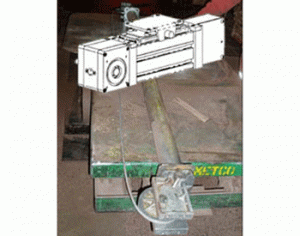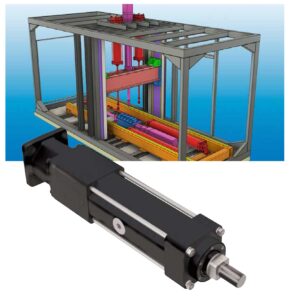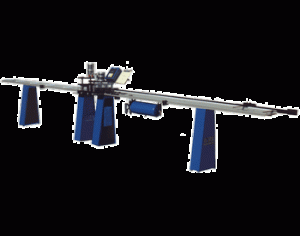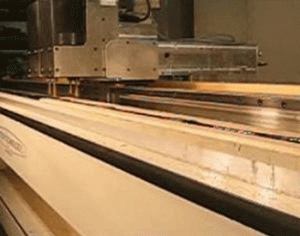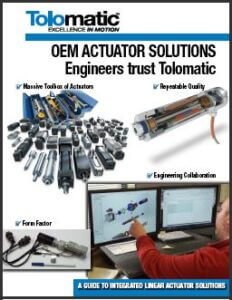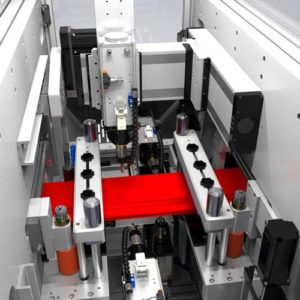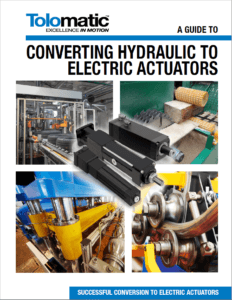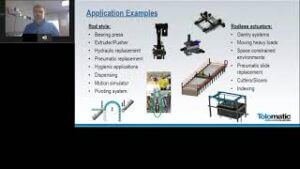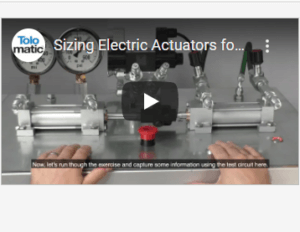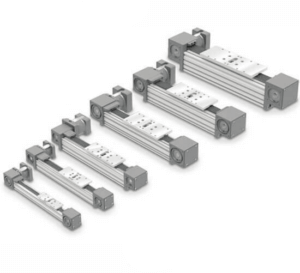Linear Actuators for Building & Construction
Electric Linear Actuators for Construction Equipment and Machinery
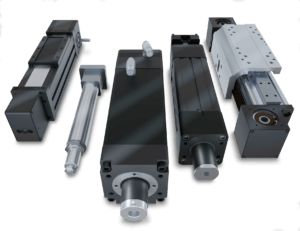
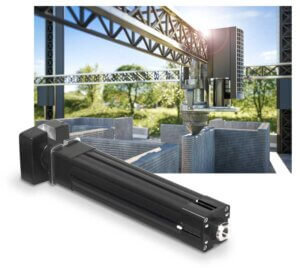
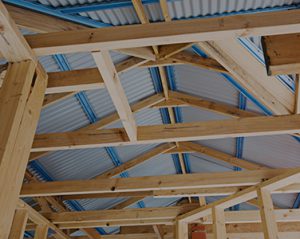
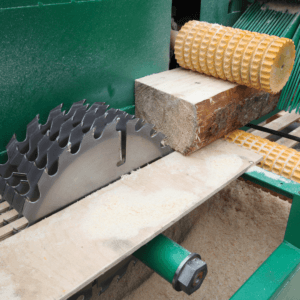
Building & Construction Electric Linear Actuator Applications
From autonomous guided vehicles (AGVs) that test road and bridge surfaces to 3D printers for house construction to automated building material production — electric linear actuators are making a difference in how engineers are designing construction equipment. The benefits of clean, continuous, control with electric linear actuators serve building and construction equipment well for a number of reasons.
- No risk of hydraulic leaks for the environment or product being manufactured
- Continuous reliable performance is maintained despite hot or cold weather conditions
- IP65 options available for wet, dirty environments
- Control for precision positioning and motion profiles
Tolomatic’s robust, high duty cycle electric rod style and rodless linear actuator designs are built to order and built to last. All of this matters when it comes to tough applications like:
- Timber processing: Saw mill, timber planing, lumber fencing, drying kilns
- Veneer and laminate production
- Manufacturing door frames, window frames, shutters
- Construction material inspection and testing
- 3D printing for construction
Our team of engineering experts stands ready to collaborate with design engineers on their machine design challenges. Let’s solve them together. Start the conversation: Ask an Engineer
Building & Construction Success Stories
Product Family: Electric
Product Used: MXB-U
Challenge
A distributor was approached by a customer requesting a powerful and versatile actuator that could be configured in multiple ways to fit their existing equipment.
Product Used: RSX Extreme Force Rod-Style Electric Actuator
Product Type:Modified Standard
Application Description
Articulate the concrete slurry dispensing head forming exterior/interior walls used in residential construction.
Product Family: Electric
Product Used: MXB
Product Family: Electric
Product Used: B3WD15 Rodless Electric Actuator
Belt driven actuator is designed for applications where loads are externally guided and supported and high speeds are required. Forces up to 420 lbf (1.9 kN).

 Ask an Engineer
Ask an Engineer